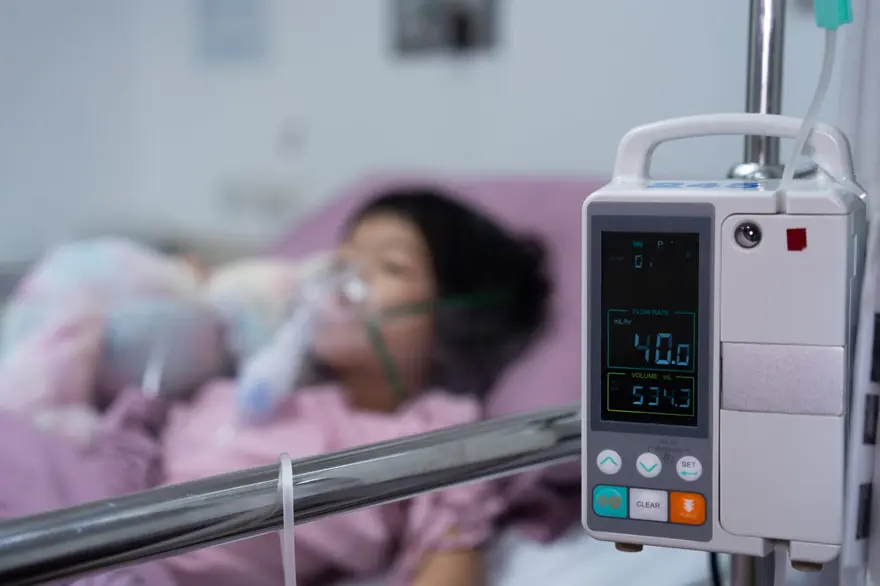Preventive Healthcare
Understanding Aphasia: Types, Symptoms, Causes, and Rehabilitation Techniques
863 Views
0

What is Aphasia?
Aphasia is a communication disorder that affects an individual’s ability to understand or use language. It usually occurs after a stroke or a brain injury, causing difficulties with speaking, understanding spoken language, reading, and writing. Individuals with aphasia may face a difficulty in speaking coherently or understanding what others are saying. As a result, it can be challenging for them to articulate their thoughts or comprehend written or spoken language.
Who does it affect?
Aphasia affects men and women equally from all backgrounds and can develop at any age, but studies shows that aphasia is most commonly diagnosed in adults over 65 years of age, and stroke is more common in older adults.
How common is Aphasia?
Aphasia affects around 2 million people worldwide each year. It is relatively a common condition caused by stroke or brain injury. Awareness and access to rehabilitation services are essential to support survivors in India and around the world.
What are the symptoms of aphasia?
Aphasia symptoms vary depending on the type and severity of the condition.
- Common aphasia symptoms includes difficulty speaking, finding right words, and forming sentences.
- Individuals may also struggle understanding spoken or written language, leading to problems following conversations or reading texts.
- Writing and reading impairments are also common with some people who are unable to write coherently or understand written material.
- Other aphasia symptoms also includes substituting the incorrect words or creating nonsensical sentences. Fluency problems can cause speech to halt or become difficult to speak.
- Comprehension problems may cause individuals to misunderstand questions or instructions.
Recognizing these aphasia symptoms is crucial for an early diagnosis and an effective treatment, enabling those affected to have better communication and quality of life.
What are the types of Aphasia?
Aphasia is a language disorder resulting from brain damage, typically due to a stroke, head injury, or other neurological conditions. Understanding the different aphasia types is crucial for accurate diagnosis and treatment. There are several aphasia types, each affecting language abilities in distinct ways.
- Broca’s Aphasia: Also known as non-fluent or expressive aphasia characterized by difficulty in producing speech. Individuals with Broca’s aphasia can understand the language relatively well but but struggle to speak or write. Their speech is often stuttered and strained, skipping small words like "is" or "the."
- Wernicke’s Aphasia: Known as fluent or receptive aphasia, this type affects the comprehension. Individuals with Wernicke’s aphasia can produce speech fluently but often with little meaning. They may use incorrect words or create nonsensical sentences, making their speech difficult to understand.
- Global Aphasia: As the most severe form of aphasia, which affects all aspects of language. Individuals with global aphasia have serious difficulties in speaking, understanding, reading and writing. This aphasia type is caused by a damage to language areas of the brain.
- Anomic Aphasia: People with an anomic aphasia have difficulty finding the right words, especially nouns and verbs, making their speech vague and circumlocutory. Despite this, their comprehension, reading and writing skills remain relatively intact.
- Primary Progressive Aphasia (PPA): Unlike other aphasia types, which are caused due to sudden brain injuries, PPA is a gradual degeneration of brain tissue affecting language. It starts with a subtle language problem that progressively gets worsen over time.
- Conduction Aphasia: This type involves a difficulty in repeating words or phrases. Individuals with conduction aphasia understand and produce speech fairly well but struggle with repetition and may have frequent speech errors.
- Transcortical Aphasia: This category includes transcortical motor aphasia (similar to Broca's aphasia, but with intact repetition), transcortical sensory aphasia (similar to Wernicke's aphasia, but with preserved repetition), and mixed transcortical aphasia (combination of the two with preserved repetition).
Each of these aphasia types requires a therapeutic approaches to address any specific language deficits and help the individuals to improve their communication skills. Accurate diagnosis of the different aphasia types is essential for effective treatment planning.
What causes Aphasia?
Aphasia causes are linked to damage in the language-dominant hemisphere which is usually on the left side.
This damage can be caused by:
- Stroke (most common cause)
- Head injury
- Brain Tumour or Infection
- Neurodegenerative diseases like Alzheimer's Disease or Dementia
Understanding the cause of aphasia is crucial as it guides treatment and rehabilitation strategies.
How to diagnose Aphasia?
Diagnosing aphasia involves a comprehensive assessment done by a speech-language pathologist who uses various tests to evaluate an individual's ability to speak, understand, read and write. Additionally, medical imaging procedures like CT scans, MRIs, or Positron Emission Tomography can also be employed to visualise the brain and determine the site and extent of damage.
What tests will be done to diagnose this condition?
To confirm a diagnosis of aphasia and create a comprehensive aphasia treatment plan, healthcare providers may use:
- Speech and Language Tests: These help evaluate an individual's ability to speak, understand spoken language, read, and write.
- CT Scan: This imaging test provides detailed images of the brain, helping pinpoint areas of damage.
- MRI Scan: It offers comprehensive images of the brain’s internal structures.
- Positron Emission Tomography (PET): This test helps to evaluate brain function and identifies the areas where brain activity is reduced.
How is Aphasia treated?
The main goal of aphasia treatment is to improve the individual's ability to communicate effectively.
The aphasia treatment approach usually involves:
- Speech-Language Therapy: A speech-language pathologist helps with exercises to improve language abilities and use alternative communication methods.
- Support Groups: These groups provides opportunities for social interaction and communication practices.
- Computer-Based Therapy Programmes: These can supplement traditional speech-language therapy.
How to prevent Aphasia?
Preventing aphasia aims to reduce the risk factors for stroke and other conditions that can lead to brain damage. This includes maintaining healthy lifestyle, effectively managing chronic diseases like diabetes and high blood pressure, avoiding tobacco and excessive alcohol consumption, and staying physically active.
What is the outlook for people who have Aphasia?
Living with aphasia can be difficult. However, many people are able to regain functional communication through therapy and rehabilitation techniques. With support from family, caregivers and therapists, recovery from aphasia can be greatly improved.
Conclusion
Understanding aphasia - its types, symptoms, causes and treatment options - is crucial for identifying it early on and commencing effective treatment. Despite the challenges presented by aphasia, individuals can lead fulfilling lives with the right therapeutic strategies and support systems.
At Metropolis Healthcare, we understand the importance of early diagnosis and intervention. Our sophisticated diagnostic services offer accurate results that can guide your healthcare provider in formulating an effective treatment plan. We are committed to empowering patients in their health journey with reliable, timely, and patient-centric services.
Remember, while aphasia may change the way you communicate, it doesn't define who you are. Support, patience, and understanding go a long way in navigating through life with aphasia.













1701259759.webp)









 WhatsApp
WhatsApp